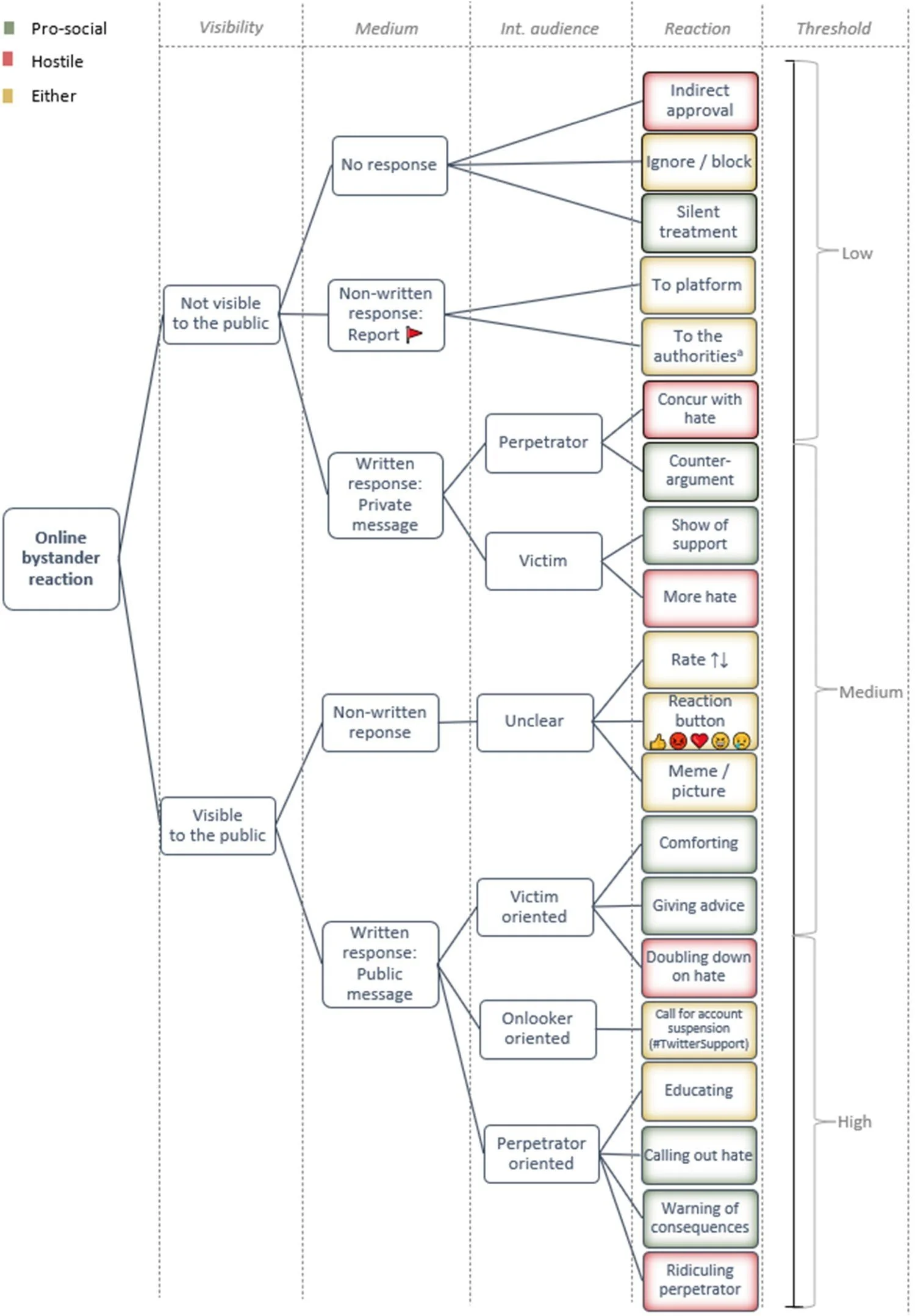The Many Ways We Can Respond to Political Hate Online
Online spaces have become hostile and unregulated. Many social media platforms have reduced or eliminated moderation efforts, leaving users to navigate harmful content without platform intervention. This means bystanders—people who witness but are not directly targeted—play a bigger role than ever in shaping online conversations.
However, their actions are often oversimplified as either speaking up or staying silent, when in reality, their responses are much more complex.
Our research
To better understand bystander reactions, we reviewed research from the fields of political science, communication studies, and sociology. We examined how people engage with online hostility, what influences their decisions, and what impact their actions have—whether they report, ignore, support, or push back.
By synthesizing insights across multiple fields, we created a more comprehensive and structured way to categorize online bystander behaviors: The Online Bystander Repertoire of Action (OBRA) Framework.
Key Takeaways
Bystander reactions to online hostility vary widely and can be categorized based on:
Visibility: Some responses, like commenting or publicly calling out behavior as hostile, are noticeable. Others, like reporting a post or privately supporting the victim, are unseen.
Medium of Response: Actions range from silently ignoring to clicking a reaction button, writing a comment, or sending a private message.
Intended Audience: Responses can be directed at:
The victim (offering support),
The sender (confronting or discouraging hostility), or
Other bystanders (influencing broader behavior).
Threshold for Action: Some responses require minimal effort (e.g., clicking “like” on a supportive comment), while others demand more engagement (e.g., writing a detailed response).
Pro-Social Impact: Some bystander actions can steer online discussions in a more constructive direction, helping to reduce hostility and encourage positive interaction. Others, even if well-intended, can reinforce hostility rather than de-escalate conflicts.
An overview over the many ways online bystander actions can be categorized.
The Online Bystander Repertoire of Action (OBRA) Framework
